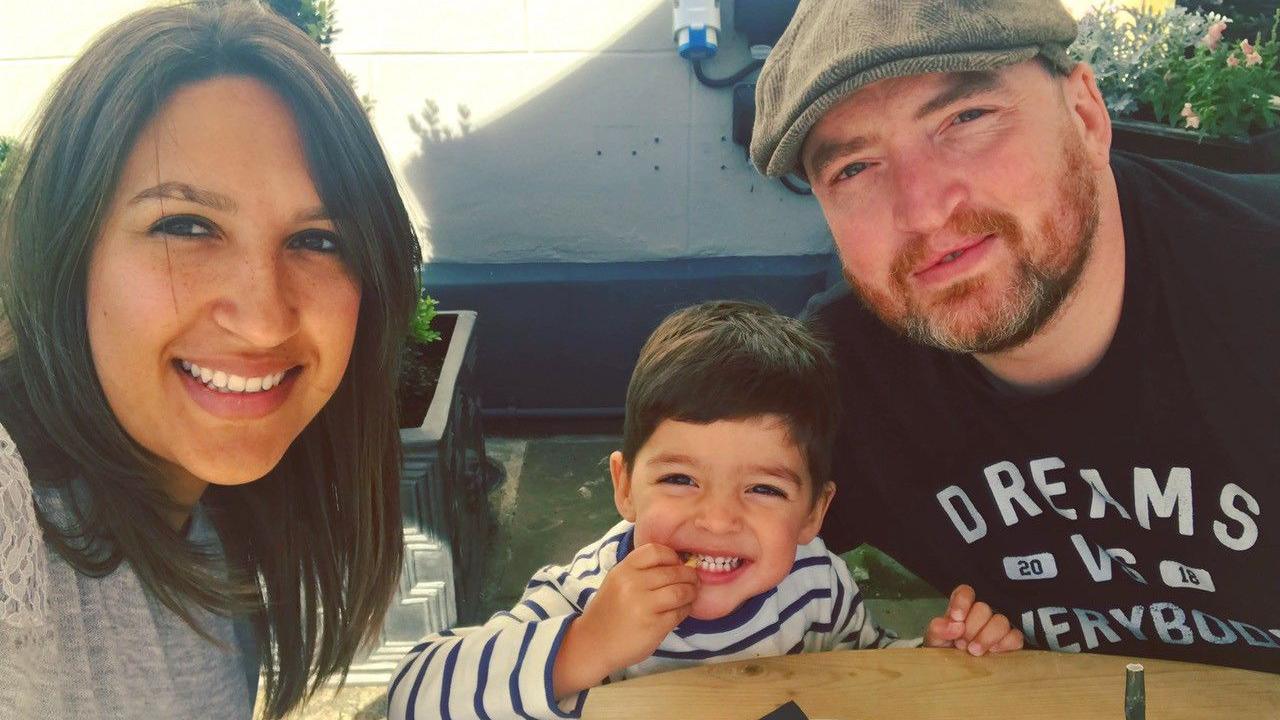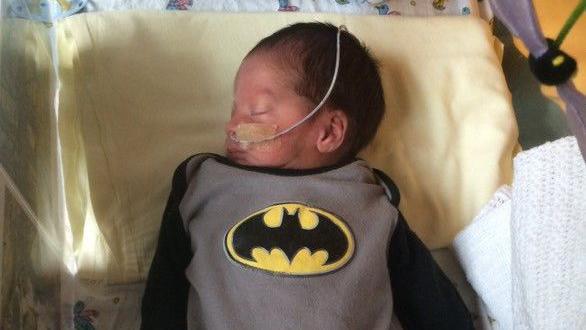Call for autism 'screening' for premature children

Rosea and Craig Poynter believe they waited longer than they should have for a diagnosis of autism and ADHD for their son Freddie
- Published
A mum is calling for a national screening programme for all children born premature after her son was diagnosed with autism and ADHD after an almost five-year wait.
Freddie was born in 2016 at just over 29 weeks, weighing less than 4lb, and spent six weeks in intensive care.
Research has shown children born prematurely have an increased risk of having developmental problems and disorders.
Despite this, Freddie's mum Rosea Poynter said after being discharged from support in his early years, he had to endure a long wait before he was diagnosed in July, now aged eight.
She believes a dedicated health pathway for children born early, like Freddie, would help diagnose neurodevelopmental issues quicker.

Freddie's parents say he was displaying signs of a developmental disorder from a young age
There are currently National Institute for Health and Care Excellence (NICE) guidelines in place for care providers - but Mrs Poynter is calling for those to be more robust.
Freddie did have access to a programme of support at the local child development centre, which he was discharged from when he was two and a half years old.
That meant when he started displaying symptoms of ADHD and autism about five years ago, Mrs Poynter and her husband Craig had to "go back to the beginning".
"We no longer had access back to that service, despite being told at birth that he would be at higher risk of neurodiversity," Mrs Poynter said.
She had to take her son to a GP to be referred on to the relevant pathway and had to wait in that "queue with everybody else", she said.
'Blind parenting'
"Quite often premature children are having to manage with a whole range of additional conditions that make their lives more challenging.
"But if we can screen for something that can help to make their lives a little more different, then why wouldn't we?" Mrs Poynter said.
Since Freddie was diagnosed, Mrs Poynter said they now had access to services that would support his specific needs.
She said his school was now in the process of arranging his Education, Health and Care Plan (EHCP) - a plan that can be drawn up for children and young people who need more help than is available through special educational needs support.
But for a long time, Mrs Poynter said she and her husband felt they were "blind parenting".
NICE guidance
A baby born before 37 weeks is considered premature.
NICE recommends that children born before 30 weeks' gestation - and therefore an increased risk of developmental problems or disorders - should be provided with "enhanced developmental support and surveillance by a multidisciplinary team for up to two years".
It also recommends that all children born before 28 weeks' gestation should have a face-to-face developmental assessment at four years.
However, NICE published this guidance in 2017, a year after Freddie was born.
Mrs Poynter says, had it been in place, he would have fallen outside of the criteria for an assessment at four years old because he was born later than 28 weeks.
Samantha Johnson, a professor of child development at the University of Leicester, said: "We don't know the exact reasons why pre-term children are at a higher risk, and it's actually likely to be a multiplicity of causes."
But, she said, it was "very difficult" to predict which premature children would have such disorders later in life from a very early stage.
"So for that reason, the developmental follow-up that very pre-term children are offered at two and four years old up is really important to identify these children who need long-term support," she added.
Earlier this year, NHS England launched an ADHD taskforce with an aim to improve service provision.
An NHS spokesperson said: "We established the ADHD taskforce earlier this year to understand more about the issues impacting those with ADHD and their families, and how service provision can be better joined up to meet people's needs today, and in the future, to ensure people, including children and young people, have access to early support.
"We have also published new national guidance to help local partners to deliver high-quality autism assessment services for people in their area and manage the 140% increase in referrals over the last four years, while providing enhanced autism training for psychiatrists."
Get in touch
Tell us which stories we should cover in Nottingham
Follow BBC Nottingham on Facebook, external, on X, external, or on Instagram, external. Send your story ideas to eastmidsnews@bbc.co.uk, external or via WhatsApp, external on 0808 100 2210.
Related topics
- Published11 December 2024
